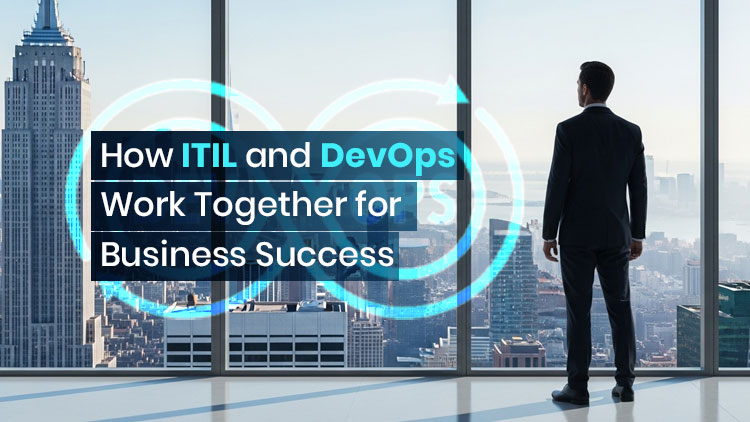
From Exam Prep to Real-World Impact: Why Certifications Matter

From Exam Prep to Real-World Impact: Why Certifications Matter
Introduction
In today’s fast-paced world of business and technology, being competitive is all about continuously upgrading your skill set. Degrees and experience are important, but they are no longer the only markers of capability. Certifications are now potent, industry-validated tools for proving technical knowledge, enhancing career opportunities, and showing professional dedication.
From cloud computing to cybersecurity, project management to DevOps, certifications break down doors wide open. But they do far more than let you pass an examination; they bridge the gap between theory and practical application, changing the way you can add value in a work setting.
At VERSAtile Reads, we don’t just provide you with exam prep resources; we help you build a career.
Discover expertly crafted guides, exam crams, and practice resources tailored to cloud, cybersecurity, DevOps, and more.
The Increasing Significance of Certifications
Why Are Certifications Needed?
Technology is evolving rapidly, and employers are under pressure to find talent that can adapt just as quickly. Certifications are a trusted signal that a professional is skilled, up-to-date, and ready to contribute from day one.
Whether you’re a recent graduate or a seasoned professional transitioning to a new domain, certifications help you:
- Validate your expertise against industry standards
- Stand out in competitive job markets
- Fulfill hiring or compliance requirements
Most organizations now include certifications as desired or necessary qualifications in job postings, particularly for cloud architecture, cybersecurity, network engineering, and software development positions.
From Learning to Applying: The True Worth of Certifications
One of the myths is that certifications are simply memorizing facts to pass exams. The fact is, quality certification programs are created to:
- Organize your learning in a relevant manner
- Promote hands-on practice with labs and simulations
- Align with real job responsibilities and technologies
Structured Learning for Practical Competence
Unlike informal tutorials or random YouTube videos, certifications follow a curriculum crafted by industry experts. This ensures that what you’re learning:
- Covers both foundational and advanced topics
- Is aligned with current industry trends
- Is relevant to the problems you’ll solve in a job setting
For example, an AWS certification not only teaches cloud theory but also how to design scalable, secure, and cost-efficient solutions using actual AWS services.
Hands-On Labs and Case-Based Scenarios
Certifications from vendors such as Microsoft, Cisco, CompTIA, and Google typically incorporate labs, case studies, and interactive exercises that mimic actual workplace challenges.
These elements construct:
- Problem-solving ability
- Technical proficiency
- Decision-making within limitations
This is the real transition from exam preparation to ready-for-work.
How Certifications Advance Your Career
Certifications offer measurable career benefits that go far beyond learning:
1. Enhanced Job Prospects
Employers often filter applications based on keywords, and certifications make your resume stand out. For recruiters and hiring managers, certifications are:
- Proof of dedication
- Evidence of up-to-date skills
- Assurance of capability
A candidate with a certification is more likely to be shortlisted, especially when job roles require specialized knowledge (e.g., cloud, cybersecurity, or project management).
2. Increased Earning Potential
Several industry studies point out that certified individuals earn higher than their non-certified counterparts. For instance:
- CEH-certified hackers receive higher pay in cybersecurity
- PMP-certified project managers receive 20–25% higher pay than those who are not
- Cloud certifications like AWS Solutions Architect or Google Cloud Professional frequently translate to six-figure pay
- Certifications demonstrate you’re willing to accept greater responsibilities, and pay often ensues.
3. Promotion and Career Mobility
Certifications can be stepping stones to new jobs as well. Whether you’re transitioning from help desk to systems administration, or from programmer to DevOps engineer, certifications provide the knowledge and credibility to make the shift.
They also reflect your dedication to ongoing learning, a virtue that employers want to assemble agile, innovative teams.
Certifications and Lifelong Learning
Technology doesn’t stand still. New tools and technologies arrive, threats to security mutate, and business requirements change. That’s why certifications foster a culture of continuous learning, urging professionals to:
- Keep up to date with the latest technologies (e.g., changes in cloud services, regulatory requirements)
- Recertify from time to time
- Ongoing extension of current competencies (advanced or role-specific certifications)
Real-World Impact: Certifications in Action
Here’s how certifications translate from tests into actual-world settings:
1. Cloud Architect Positions
Certifications such as AWS Certified Solutions Architect, Azure Administrator, or Google Cloud Professional Architect instill skills such as:
- Scalable cloud infrastructure design
- Data redundancy and disaster recovery
- Cost-optimization implementation
In actual projects, certified professionals apply these skills to enhance efficiency, minimize downtime, and cater to organizational objectives.
2. Cybersecurity Operations
Certifications such as CompTIA Security+, CISSP, or CEH prepare professionals to:
- Identify and respond to cyber attacks
- Implement access controls and data encryption
- Perform vulnerability scanning
Organizations depend on certified professionals to secure sensitive data and ensure compliance with industry standards.
3. Project and Service Management
Certifications such as PMP, ITIL, or Agile Scrum Master prepare professionals to:
- Lead complex projects
- Handle timelines and resources
- Enhance service delivery and stakeholder satisfaction
In business settings, certified managers oversee smoother, more predictable projects—meaning better client satisfaction and operational effectiveness.
Choosing the Right Certification
With so many, selecting the right certification is overwhelming. Here’s a plan to simplify the process:
1. Determine Your Career Objective
- Are you seeking a cloud position, cybersecurity, networking, or management?
- Align your certification track with your career goals.
2. Take Your Skill Level Into Account
- Starters can begin with entry-level certifications (e.g., CompTIA A+, Microsoft Azure Fundamentals).
- Seasoned professionals can choose role-based or advanced certifications.
3. Check Industry Demand
- Examine job boards and recruitment trends in your desired field.
- Cloud, security, and DevOps certifications are in great demand.
4. Select Reputable Providers
- Stick to highly regarded vendors like AWS, Microsoft, CompTIA, Cisco, PMI, and ISACA.
- These are well-known across industries and tend to have approved learning materials.
Take Your Learning Further with Versatile Reads
Looking for exam cram notes, practice questions, and professional guides in one place?
Explore our expertly curated bookstore at VERSAtile Reads (https://versatileread.com/) – your go-to platform for mastering technology, Cloud, Cybersecurity, Management, DevOps, and more.
- Find the right book for your next certification
- Access in-depth resources across leading tech domains
- Learn at your own pace, from anywhere
Conclusion
Certifications have shifted from elective credentials to essential career aids. Certifications confirm abilities, show commitment, and fill the important gap between theoretical knowledge and in-the-workplace contribution. More significantly, certifications impart a growth and lifetime learning mentality, attributes that characterize profitable professionals in today’s dynamic world.
FAQs
1. Do certifications assure employment?
Although certifications greatly enhance your prospects for getting employed, they are not foolproof. They do show credibility, initiative, and readiness for work, three very desirable qualities among employers.
2. How much time does it take to study for a certification exam?
The study time varies according to your level of experience and the certification. Simple certifications can be studied in 4–6 weeks, while more advanced ones, such as CISSP or PMP, can be studied in 3–6 months.
3. Do employers recognize online certification programs?
Yes, employers recognize online certification programs. The majority of online certifications offered by prominent vendors (AWS, Microsoft, Google, etc.) are well accepted and valued across industries.
- Published Date:



